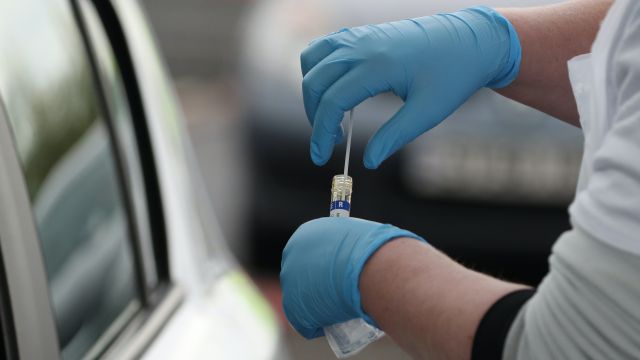A team of researchers across Europe, which included experts from the University of East Anglia, compared the experiences of loss of taste and smell of people who had Covid-19 alongside those with other upper respiratory tract infections.
In the small study involving 30 people, they also found that unlike common cold or flu, those with Covid-19 cannot detect bitter or sweet tastes.
The researchers believe their findings, published in the journal Rhinology, could help in developing smell and taste tests as a more rapid screening tool to identify those who may have Covid-19.
Lead researcher Professor Carl Philpott, from University East Anglia’s Norwich Medical School, said: “This is very exciting because it means that smell and taste tests could be used to discriminate between Covid-19 patients and people with a regular cold or flu.
“Although such tests could not replace formal diagnostic tools such as throat swabs, they could provide an alternative when conventional tests are not available or when rapid screening is needed – particularly at the level of primary care, in emergency departments or at airports.”
The team carried out smell and taste tests on 10 Covid-19 patients, 10 people with bad colds, and a control group of 10 healthy people.
Our results reflect, at least to some extent, a specific involvement at the level of central nervous system in some Covid-19 patients
Prof Philpott said: “We found that smell loss was much more profound in the Covid-19 patients.
“They were less able to identify smells, and they were not able to identify bitter or sweet tastes.
“In fact, it was this loss of true taste which seemed to be present in the Covid-19 patients compared to those with a cold.”
According to Prof Philpott, the findings add to the theory that Covid-19 infects the brain and central nervous system.
He said: “Our results reflect, at least to some extent, a specific involvement at the level of central nervous system in some Covid-19 patients.
“It is particularly interesting that Covid-19 seems to particularly affect sweet and bitter taste receptors, because these are known to play an important role in innate immunity.”
He said that more research is needed to understand whether genetic variations in people’s bitter and sweet taste receptors might predispose them to Covid-19, or whether the infection changes how these receptors function.
We are now doing more experiments in the lab to see whether the virus is indeed using these cells (in the olfactory epithelium) to access and infect the body
Meanwhile another study, published in the European Respiratory Journal, suggests the presence of high levels of a protein, called angiotensin converting enzyme II (Ace-2), in the area of the nose responsible for smelling, could be linked to loss of smell in Covid-19 patients.
Ace-2 is thought to be the entry point that allows coronavirus to get into the cells of the body and cause an infection.
A team of scientists, which included experts from Johns Hopkins University in the US, analysed tissue samples from the back of the nose of 23 patients who had sinus problems but had not been diagnosed with Covid-19.
They also studied biopsies from the windpipe of seven patients.
The researchers found the levels of Ace-2 was between 200 and 700 times higher on lining cells of the olfactory epithelium, the area at the back of the nose where the body detects smells, when compared to other tissue in the nose and in the windpipe.
This was regardless of whether the patient had been treated for chronic rhinosinusitis or another condition, the researchers said.
Study author Professor Andrew P Lane, director of Johns Hopkins Sinus Centre, said: “We are now doing more experiments in the lab to see whether the virus is indeed using these cells to access and infect the body.
“If that’s the case, we may be able to tackle the infection with antiviral therapies delivered directly though the nose.”







